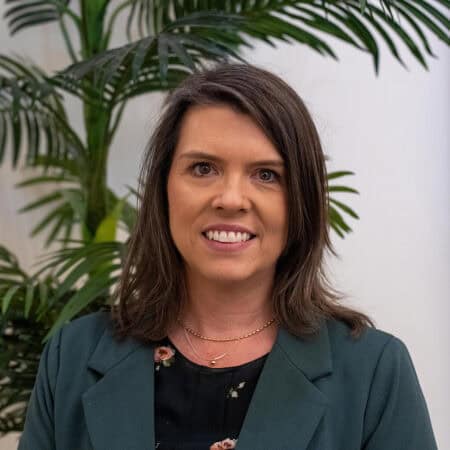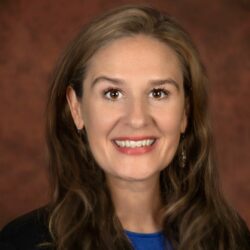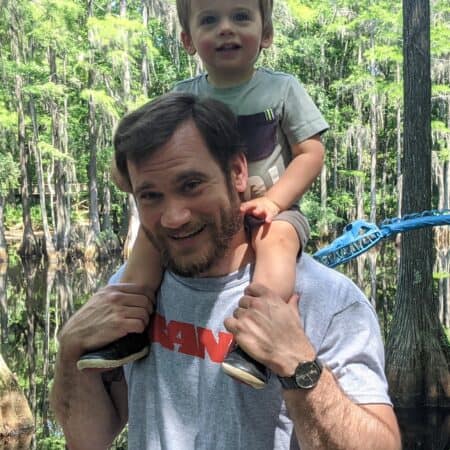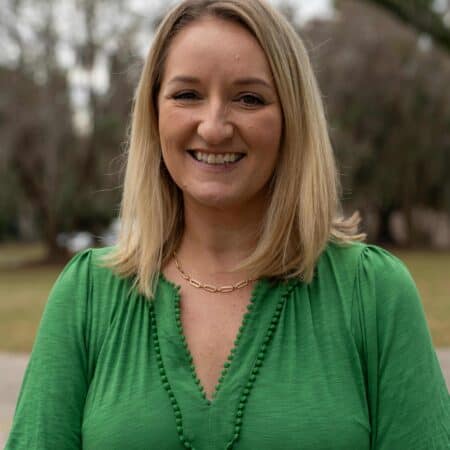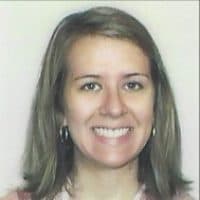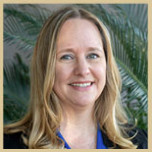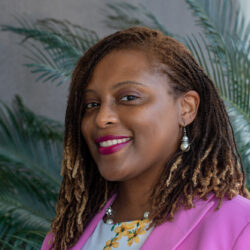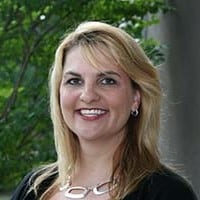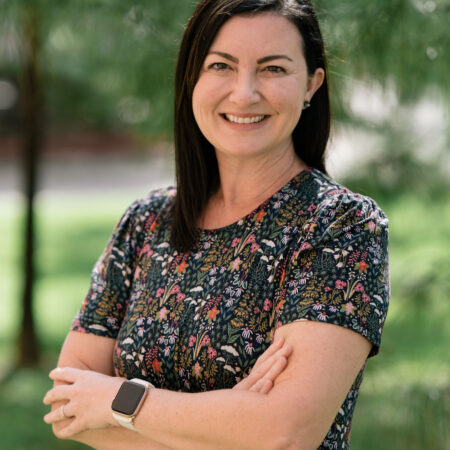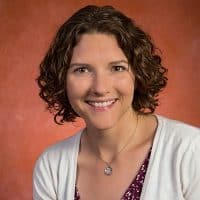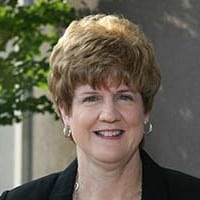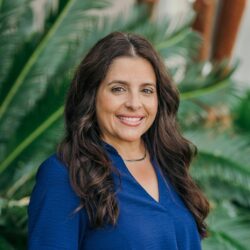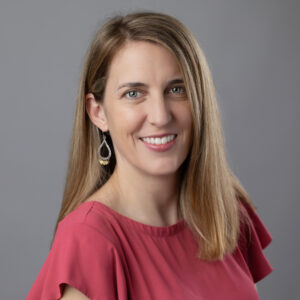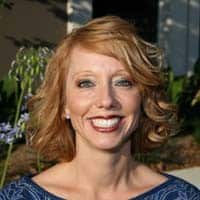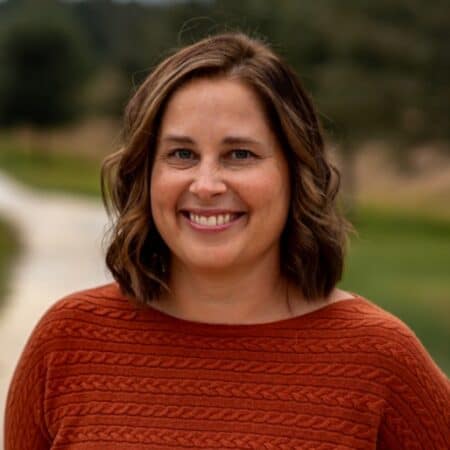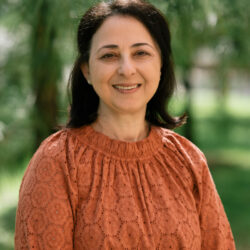GRADUATE CERTIFICATE IN
SPEECH-LANGUAGE PATHOLOGY PREREQUISITES (BRIDGE)
Program Information
College: Communication & Information
Degree: Graduate Certificate
Limited Access: Yes
Contact: Jennifer Kekelis
Address:
201 W. Bloxham,
Warren Building
Tallahassee, FL 32306-1200
Phone: (850) 645-9371
Email: FSUBridge@cci.fsu.edu
Start your new career with the SLP Bridge Program.
Are you:
- Interested in SLP graduate school, but not a communication science and disorders major?
- Changing careers and need to meet the requirements for graduate school?
- Interested in becoming a licensed SLPA?
Our Bridge program is for you!
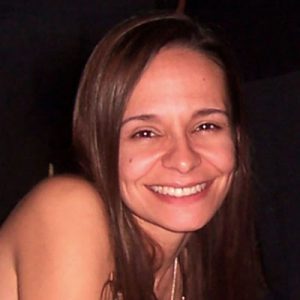
“Distance Learning was a wonderful option for me, since I have a full-time career and a family. I was happy I’d be able to work on transitioning careers, without having to give up my current employment.”
Dayce Figueroa-Daily
“The Bridge Program really did prepare me academically for my graduate course work once I started the on-campus Master’s program here at FSU.”
Meredith Kurtz

Related News
SCSD Scholars to Publish Study on AI Use Among CSD Students
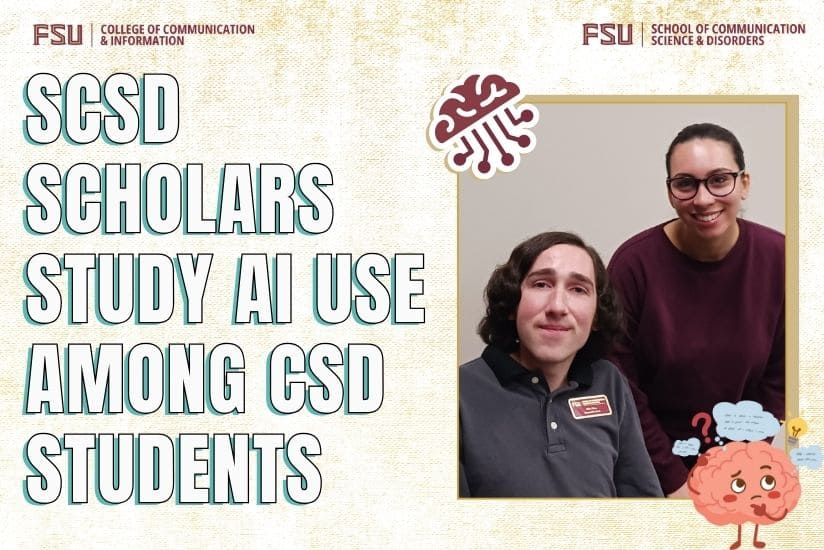
READ MORE
SCSD Doctoral Student Examines How Children Demonstrate Morphological Knowledge in Writing
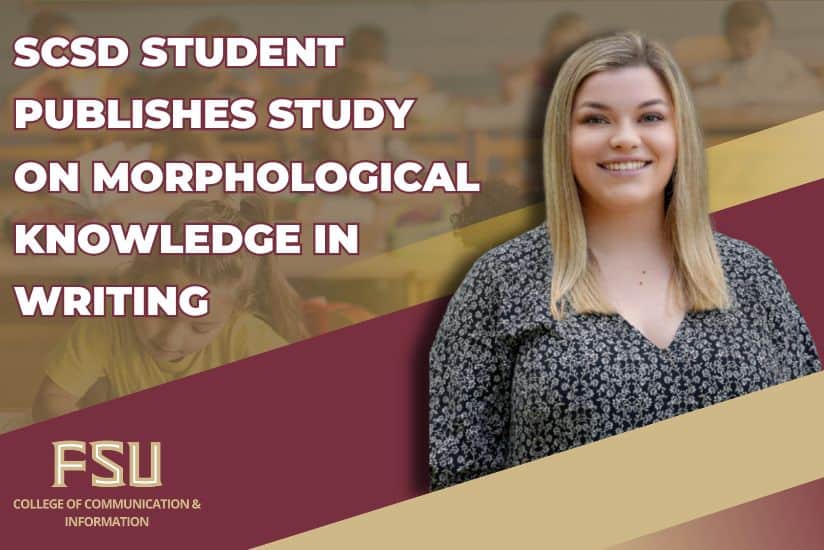
READ MORE
SCSD Student Shares Passion for Speech-Language Pathology in Hometown of Sint. Maarten
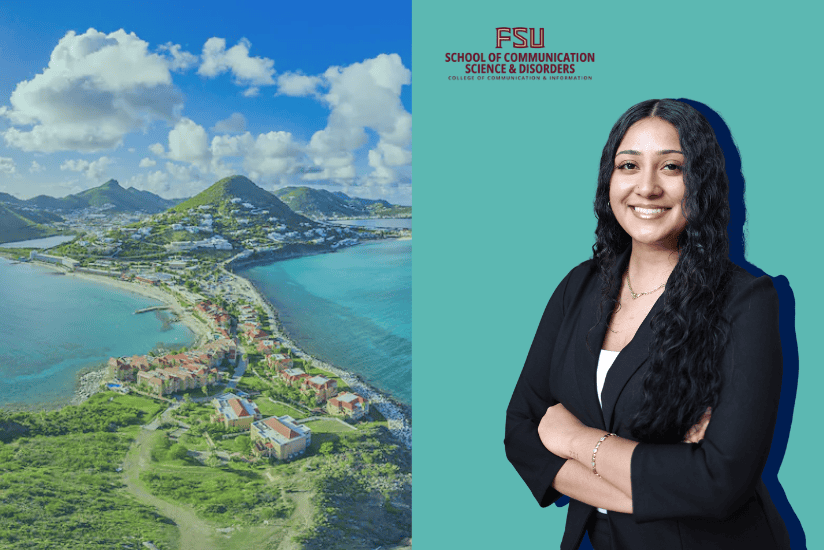
READ MORE
Program's Overview
The Bridge Program was developed to increase access to graduate training programs in speech-language pathology and prepare students for these graduate programs by offering an alternative to the traditional classroom format.
Advantages of the Bridge Program:
- Classes offered completely online
- Rolling admissions allow students to start in any semester
- Competitive tuition rates, regardless of residency status
- Can lead to licensure as an SLPA in the state of Florida
- Prepares students with the prerequisites needed to apply to CSD/SLP graduate programs.
This program offers a “bridge” to graduate training programs in speech-language pathology. The program spans three semesters and is designed specifically for students with undergraduate degrees in other fields, or for students who lack one or more required courses for entry to a graduate program.
Tuition and Fees
- Tuition rates are currently $485.00 per credit hour for ALL residents (In State and Out of State) and are subject to change. Additional fees may be applied. Please check the Student Business Services website for the most current tuition rate.
- Each course is 4 graduate credit hours.
- All students are liable for tuition and fees for any courses remaining on their schedules after the fourth day of class. Please be sure you have your finances in order by the first day of classes to ensure you can pay for the courses by the fee payment deadline, which is the third week of classes.
Financial Aid
Minimum Technology Requirements
All courses are offered online and will use Canvas extensively. To access Canvas, you will need reliable, daily internet service and an active FSU ID. For new students, information on how to acquire their FSU ID and email will be provided upon admission. All courses will use Zoom. Students may be required by the instructor to attend Zoom sessions every week at a designated time. Courses are generally held in the evening to accommodate students with working schedules. The minimum system requirements for Zoom are below:
- 20 MB free disk space
- 28.8 Kbps Internet connection
- Windows Client: Windows 2000/XP/Vista or higher, Pentium III 500 MHz processor or better
- Mac Client: Mac OS X 10.2.8 or higher,G3, G4, G5 or Intel Processor
- Linux Client: Red Hat Linux (RHEL4), Novell, SUSE 9 or 10, Pentium III 500 MHz processor, 256 MB RAM
- Headset with microphone or sound card with speakers and microphone
Request Information
Program's Courses
The course sequence for students accepted into the Bridge Prerequisite Program is listed below. Courses are offered across three semesters annually. A student may begin the program during Fall, Spring, or Summer in accordance with the prescribed application and admission deadline.
Fall
SPA 5012 Introduction to Communication Science
(4 credits)
This course provides an overview of the speech sciences. Information integrates scientific material relating to the acoustics, anatomy, and physiology of speech production and perception. Specific topics include sound, respiration, phonation, articulation, audition, and the nervous system along with clinical cases that affect these areas of speech science. This introductory course is expected to serve as a basis for understanding the science of speech and to provide a foundation for advanced graduate-level coursework in speech functions.
SPA 5102 Neurological Basis of Communication
(4 credits)
This course provides an overview of the normal neuroanatomy and neurophysiology of human communication (speech, language, and hearing), while also covering introductory information related to neuropathologies and clinical causes that affect communication. This course serves as a basis for understanding the normative and pathological processes that affect human communication and provides a foundation for advanced, graduate-level coursework in speech, language, and cognitive functions. Classes are primarily lecture based and are supplemented by videotapes, illustrations, handouts, in-class review activities, and Internet activities. Lectures follow the text, but not necessarily in order of the chapters.
Spring
SPA 5113 Clinical Phonetics
(4 credits)
This course focuses on learning to phonetically transcribe spoken language. Students learn and frequently practice transcription of vowels and consonants at the levels of isolation, syllables, words, phrases, and connected speech. The course also incorporates relevant material covering phonetics as a science, the similarities and differences between spelling and sound, anatomy and physiology of the speech mechanism, clinical phonetics, and dialectal variation in spoken language
SPA 5103 Anatomy and Physiology of Speech/Language and Hearing
(4 credits)
This course provides the foundation for advanced study in communication science and disorders. Understanding the normal structure and function brings about an increased understanding of the pathology present in the myriad of patient populations encountered in future practical experiences as an SLP student clinician and, later, in practice. Students learn about the nature of communication and swallowing, primarily their anatomic, physiologic, acoustic, and perceptual characteristics.
Summer
SPA 5009 Normal Communication Development
(4 credits)
This course provides an overview of the fundamental bases of language development and their disorders. The knowledge and skills acquired in this course are pivotal to preparing future professionals for a variety of careers and scientific inquiry. Knowledge of typical language development is essential for a variety of professions such as working in an educational setting or child-care capacity, working with individuals with communication disorders, or conducting related research. This overview serves as a foundation for advanced coursework.
SPA 5033 Introduction to Clinical Audiology
(4 credits)
This course introduces the field and practice of audiology as a prerequisite to graduate studies in Communication Sciences and Disorders or as a supplement to studies in related fields. Topics include the nature, measurement, and perception of sound; basic anatomy and physiology of the human auditory system; the nature, causes, and effects of hearing impairment; basic hearing assessment; treatment options for hearing impairment; as well as information regarding assessment and treatment of special populations.
SPA 5058 Clinical Methods
(4 credits)
This course introduces students to clinical practice in speech-language pathology and provides a link between scholarship and practice. It is intended to supplement other academic courses with applied clinical knowledge which should strengthen their application for graduate studies. Students will become acquainted with the scope of practice, ethical obligations and supervision of the SLPA, medical billing and documentation, implementing treatment plans, intervention strategies and techniques, service delivery options, behavior management and data collection. Course topics include fundamentals of the profession, principles of intervention, a clinical focus on treating clients with various developmental and acquired impairments, data collection, and documentation. Observation of speech and language is also included. (This course may also be offered in the Fall and Spring.)
Admissions
Eligibility Requirements
Students are admitted to the Bridge Program every semester. Enrollment is competitive, application to the program does not guarantee admission. The following are minimum requirements:
- A bachelor’s degree in a field other than communication science & disorders at a regionally-accredited institution prior to starting the course sequence.
- An undergraduate GPA of 3.0 or better. Nontraditional students may include a record of higher grades in recent coursework with an explanation for consideration.
- A written Admissions Essay.
Admission to the Bridge Program does not include admission to the FSU Communication Science & Disorders Master’s Degree Program. The admission requirements for a Master’s Degree program should be investigated prior to enrolling in these courses, as prerequisite requirements vary across universities.
Admission Process
Application Deadlines: Summer Semester: April 6; Fall Semester: July 15; Spring Semester: November 1 (subject to change by School). Students must complete a multi-step application process.
- Submit the non-degree seeking graduate application to FSU Non-Degree Application with official transcripts.
NOTE: Admission to the Bridge program is contingent upon your acceptance as a non-degree seeking student by FSU Admissions - Submit the Bridge Program Online Application:
- The application to the SCSD Bridge Program.
- Admissions Essay should be sent via email to FSUBridge@cci.fsu.edu. Acceptable formats are Microsoft Word or Adobe PDF.
- A second copy of official transcripts sent digitally to FSUBridge@cci.fsu.edu effective immediately. Please email if you have any questions.
Admissions Essay
Essays should be double-spaced, saved as a pdf, and submitted to FSUBridge@cci.fsu.edu after you complete the Bridge program essay. Your response should be no more than 3 double-spaced pages using APA style (6th edition). Please ensure your name is on the top of your essay.
Essay Prompt
The 21st Century offers diverse opportunities and challenges for an SLP within a global society. Choose one or two areas of interest from the following list and discuss how the field of Speech Language Pathology can be incorporated within your chosen area of interest; what you believe you can contribute, and what you need to learn as a graduate student to prepare for the evolution of the field. Areas of Interest:
- Technology
- Cultural diversity
- Bilingualism — English language learners
- African American English
- Longevity and aging of America
- Medical and educational supports to newborns and families
- Expanding scope of practice in education
- Augmentative communication
- Academic success (written oral communication of literacy across the curriculum)
- Medical advance
- Higher and longer survival rates with disease and trauma
- Cochlear implants
Registration Information
Once applicants are admitted by the School of Communication Science & Disorders, an email will be sent to accepted students before registration opens with information from the Academic Assistant on how to register for courses. Registration for non-degree seeking students is typically the Friday before the start of the semester. All applicants must be admitted by the university by this day to take classes for that semester. Registration is the responsibility of the student. For registration dates each term, see the most current academic calendar here. Also, please be aware that students must purchase the course textbook prior to the first day of class (information on the textbooks will be contained in the aforementioned email). Failure to purchase your textbook by the first class meeting will likely lead to a penalty on a course assignment.
Contact Us
For questions regarding the program, contact Jennifer Kekelis at FSUBridge@cci.fsu.edu or (850) 645-9371.
Program's Faculty
Crass, Kimberlee
Teaching Faculty II, Undergraduate Program Coordinator, NSSLHA Faculty Advisor
Deason, Jinger
Graduate Program Director - Distance Learning; Clinical Placement Coordinator; Teaching I
Farquharson, Kelly
Professor; Director, Children's Literacy and Speech Sound (CLaSS) Lab
Hall-Mills, Shannon
Associate Professor; Graduate Program Coordinator (TLH Campus)
Lansford, Kaitlin
Professor and Associate Dean for Research and Creative Activities
Montgomery, Tricia
Teaching III Faculty, Director of Clinical Education & Director - FSU Speech & Hearing Cli
Morris, Richard
Professor, Associate Dean for Academic Affairs and Faculty Advancement
Nimmons, Ellen M.
Teaching Faculty III, Clinical Faculty Instructor
Sasser, Linda
Teaching III, Clinic Faculty, Listening and Spoken Language Specialist, Auditory Verbal Th
Snowden, Selena
Teaching Faculty III, Director of Audiology Services
Westmoreland, Jennifer
Teaching Faculty I, Clinical Instructor
BRIDGE APPLICATION
The Summer 2026 Bridge Program online application is now open.
The application deadline is April 15, 2026, at 11:59 p.m. (ET).
If you have questions or need assistance, please contact the CCI Advising Center at 850-644-7278.
Apply for Summer 2026 Bridge Program
Application opens on March 2, 2026.

